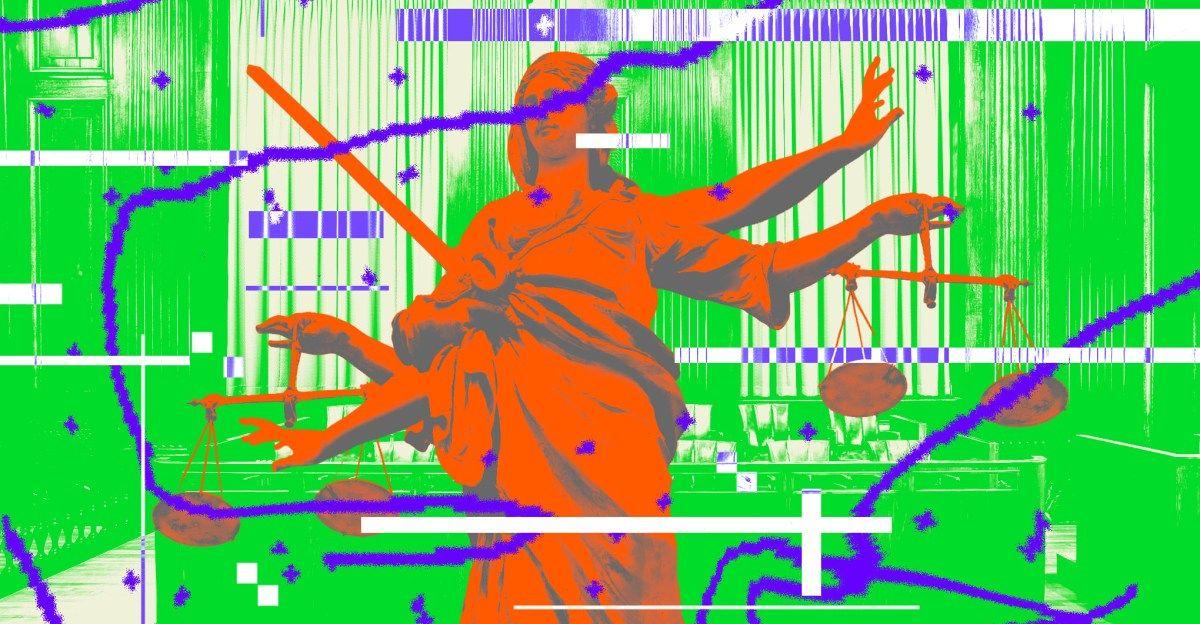New York Pioneers Ban on AI-Driven Rent Price Fixing
2 Sources
2 Sources
[1]
New York bans AI-enabled rent price fixing
On Thursday, New York Gov. Kathy Hochul signed into law legislation banning the use of price-fixing software by landlords to set rental rates. New York is the first state to outlaw algorithmic pricing by landlords, following a number of city-wide bans in Jersey City, Philadelphia, San Francisco, and Seattle. Software companies such as RealPage offer landlords algorithms that can set rental prices. The software can also help determine the ideal number of people to live in a unit or the terms of a lease renewal. RealPage says it can help its clients "optimize rents to achieve the overall highest yield, or combination of rent and occupancy, at each property." But the "private data algorithms" advertised by these software companies, Hochul says, cause the "housing market distortion" that harms renters "during a historic housing supply and affordability crisis." Not only does the law outlaw setting rental terms with the software, it also says that any property owners who use the software will be considered colluding. In other words, two or more rental property owners or managers who set rents with an algorithm are, in practice, choosing to not compete with each other, whether they do so "knowingly or with reckless disregard," the law says. This is a distinct violation from simply using the software itself. The use of this software has cost US tenants around $3.8 billion in 2024, according to Hochul's press release. A 2022 investigation by ProPublica linked RealPage's algorithm with soaring rental prices across the country. Two years later, the US government sued RealPage. The bill protects renters from "algorithmic price collusion," Pat Garofalo, director of state and local policy at the American Economic Liberties Project, said in a press release. One of the bill's sponsors, State Sen. Brad Hoylman-Sigal, said of the bill: "This legislation will update our antitrust laws to make clear that rent price-fixing via artificial intelligence is against the law and ensure there are boundaries against behaviors that the federal government has found lead to anticompetitive practices and price fixing." The law goes into effect in 60 days.
[2]
New York becomes first state to ban AI-enabled rent price fixing
Governor Kathy Hochul said the ban addresses "housing market distortion" caused by private data algorithms. New York Governor Kathy Hochul has signed legislation prohibiting landlords from using price-fixing software to establish rental rates. The law, a first for any U.S. state, is designed to counter algorithmic pricing amid a statewide housing crisis. The ban follows similar municipal-level ordinances in cities including Jersey City, Philadelphia, San Francisco, and Seattle. Software from companies like RealPage provides landlords with algorithms to set rental prices, determine ideal occupancy levels, and formulate lease renewal terms. RealPage advertises that its product helps clients "optimize rents to achieve the overall highest yield, or combination of rent and occupancy, at each property." Governor Hochul stated that these "private data algorithms" create "housing market distortion," which negatively affects renters during what she described as a "historic housing supply and affordability crisis." The new legislation not only outlaws the practice of setting rental terms with such software but also legally defines its use by multiple landlords as a form of collusion. The law stipulates that if two or more rental property owners or managers utilize an algorithm to set rents, they are, in effect, choosing not to compete with one another. This applies whether the action is taken "knowingly or with reckless disregard." This creation of a collusive agreement is considered a distinct violation separate from the act of simply using the software itself. According to a press release from Governor Hochul's office, the application of such software has resulted in an estimated cost to U.S. tenants of approximately $3.8 billion in 2024. The issue gained prominence following a 2022 ProPublica investigation that established a link between RealPage's algorithm and rapidly increasing rental prices across the United States. Two years after that report, the U.S. government initiated a lawsuit against RealPage. Supporters of the bill emphasized its role in protecting consumers. Pat Garofalo, the director of state and local policy at the American Economic Liberties Project, said in a press release that the legislation shields renters from "algorithmic price collusion." State Senator Brad Hoylman-Sigal, one of the bill's sponsors, commented on its purpose. "This legislation will update our antitrust laws to make clear that rent price-fixing via artificial intelligence is against the law and ensure there are boundaries against behaviors that the federal government has found lead to anticompetitive practices and price fixing," he said. The law is scheduled to go into effect 60 days after its passage.
Share
Share
Copy Link
New York becomes the first state to outlaw algorithmic pricing by landlords, aiming to protect renters from AI-enabled price collusion. The law targets software that sets rental rates and terms, considering its use as a form of market collusion.

New York Takes Bold Step Against AI-Driven Rent Pricing
New York has made history by becoming the first state in the United States to ban the use of artificial intelligence-enabled price-fixing software by landlords to set rental rates. Governor Kathy Hochul signed the groundbreaking legislation into law on Thursday, marking a significant milestone in the regulation of AI applications in the housing market .
The Ban and Its Implications
The new law prohibits landlords from utilizing algorithmic pricing tools to determine rental prices, ideal occupancy levels, and lease renewal terms. Companies like RealPage have been offering such software, claiming to help property owners "optimize rents to achieve the overall highest yield" . However, Governor Hochul argues that these "private data algorithms" contribute to "housing market distortion" and exacerbate the ongoing "historic housing supply and affordability crisis" .
Collusion and Legal Consequences
One of the most striking aspects of the legislation is its stance on collusion. The law stipulates that property owners or managers who use this software will be considered as colluding, effectively choosing not to compete with each other. This applies whether the action is taken "knowingly or with reckless disregard," and is treated as a distinct violation from merely using the software .
Economic Impact and Previous Investigations
The use of AI-driven pricing software has had a significant economic impact. According to Governor Hochul's press release, it has cost US tenants approximately $3.8 billion in 2024 alone . This issue gained prominence following a 2022 ProPublica investigation that linked RealPage's algorithm to soaring rental prices across the country. Subsequently, in 2024, the US government filed a lawsuit against RealPage .
Related Stories
Support and Rationale
The legislation has garnered support from various quarters. Pat Garofalo, director of state and local policy at the American Economic Liberties Project, praised the bill for protecting renters from "algorithmic price collusion" . State Senator Brad Hoylman-Sigal, one of the bill's sponsors, emphasized that the legislation updates antitrust laws to clearly state that "rent price-fixing via artificial intelligence is against the law" .
Broader Context and Future Implications
New York's state-wide ban follows similar municipal-level ordinances in cities such as Jersey City, Philadelphia, San Francisco, and Seattle . This trend suggests a growing awareness and concern about the potential negative impacts of AI-driven pricing in the housing market. As the first state-wide ban, New York's law could set a precedent for other states to follow, potentially reshaping the landscape of rental pricing across the country.
The law is set to take effect in 60 days, marking the beginning of a new era in the regulation of AI applications in the housing sector . As other states and municipalities watch closely, the impact of this legislation on rental prices, housing affordability, and the use of AI in real estate will be closely monitored in the coming months and years.
References
Summarized by
Navi
[1]
Related Stories
Recent Highlights
1
Google Gemini 3.1 Pro doubles reasoning score, beats rivals in key AI benchmarks
Technology

2
ByteDance's Seedance 2.0 AI video generator triggers copyright infringement battle with Hollywood
Policy and Regulation

3
ChatGPT cracks decades-old gluon amplitude puzzle, marking AI's first major theoretical physics win
Science and Research








